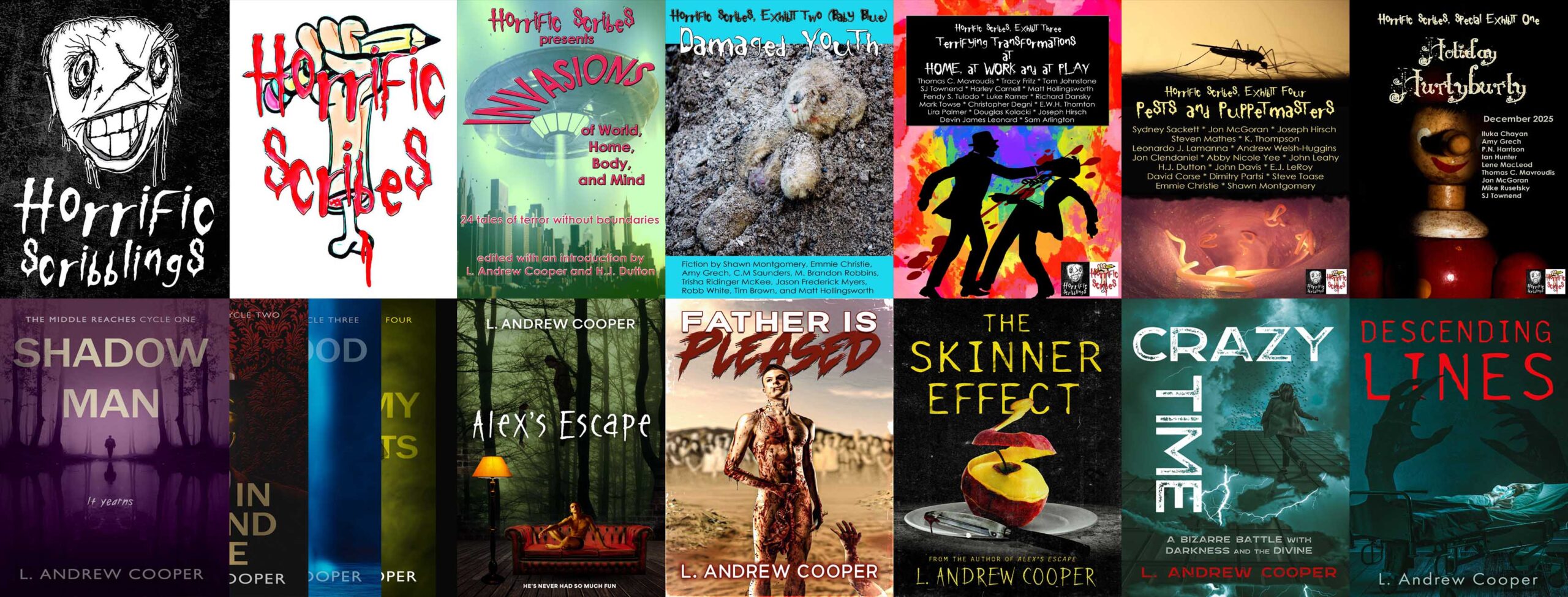Horror, surreal distortions, absurdity, and religion: these are fundamental building blocks of my novel Crazy Time, and even though I don’t stand on any clear moral ground, since Flannery O’Connor was a master of using these building blocks in her fiction, I think I can safely claim her work in my book’s ancestry. However, I want to point out a closer connection with O’Connor, a tie of direct inspiration between her story “A Good Man Is Hard to Find” and Crazy Time’s first chapter.
You can read Crazy Time’s first chapter in the Amazon Kindle preview: https://www.amazon.com/dp/B09QCVHRBJ/
In O’Connor’s first paragraph, the grandmother, who doesn’t want to go on the family trip to Florida but will go anyway, reads in the newspaper about an escaped convict, The Misfit, also headed toward Florida. She argues that the coincidence is a reason not to go. As she and the family travel, the grandmother thinks about how trips make her son “nervous,” and she brings up The Misfit again when they stop for lunch. The family and the restaurant’s proprietors generally discuss the world’s lack of trustworthy people and the fact that a good man is indeed hard to find.
Back on the road, the family soon gets into an accident and lands in a ditch. Toting guns, The Misfit and his two cronies find them. Conversation that is a delicate battle for the family’s lives ensues. As the criminals shoot members of the family, The Misfit, cold and detached, shares with the grandmother how he came to the conclusions that “‘crime don’t matter’” and that there is “‘no pleasure but meanness.’” By the end of the story, all the family members are dead, and the criminals move on.
One spark of inspiration for Crazy Time was a news article (unkept) about thieves deliberately sideswiping cars on the road so they would pull over. The thieves could then pull over with them and rob the cars’ passengers (or do worse) in isolation. The article struck me as good fodder for an urban legend, and the idea of criminals isolating victims on the roadside for terrible acts reminded me of “A Good Man Is Hard to Find.” I’d loved the story since my teens, and I wanted to craft something with the same kind of tension and brutality. Crazy Time’s first chapter began to take shape.
The first thing I realized was that O’Connor’s story recalls (or perhaps predicts) more than one urban legend. Like many a legend’s late-night travelers who hear about an escaped criminal or lunatic on the car radio and later have a (typically deadly) encounter with the escapee, O’Connor’s characters reading about The Misfit in her story’s opening seems to seal their fate. Thus, when Crazy Time’s characters in the opening chapter—Lily, Eric, Kris, and Mia—notice that a pickup truck on the highway seems to be toying with them in their car, they think of urban legends and deadly outcomes with a kind of prescience.
Tension escalates as Lily and friends continue to imagine the worst, similar to the way O’Connor builds tension by having characters continue to discuss The Misfit and reflect on nervousness and the bad state of humanity. In both tales, the promise of the urban legend’s warning phase gets fulfilled when the protagonists’ cars end up on the roadside. In Crazy Time, the pickup truck sideswipes Lily and the others, and they end up trapped on the roadside with the men from the pickup, sadistic murderers who tease with conversation and certainly seem to believe that “crime don’t matter” and that there’s “no pleasure but meanness.”
The killers in “A Good Man Is Hard to Find” and Crazy Time’s first chapter all display a sociopathic indifference to the pleas and suffering of their prey, but they behave differently (Crazy Time’s killers are much more enthusiastic), and the situations take different turns and have different outcomes. If my chapter is successful, though, it shares with O’Connor not only a vicious brutality but also a feeling of emptiness, a senselessness that might carry more global significance. I leave that determination to you.
Again, read Crazy Time’s first chapter in the Amazon e-book preview: https://www.amazon.com/dp/B09QCVHRBJ/
O’Connor, Flannery. “A Good Man Is Hard to Find.” Flannery O’Connor: Collected Works. Ed. Sally Fitzgerald. New York: The Library of America, 1988. 137 – 153.


Comments are closed.